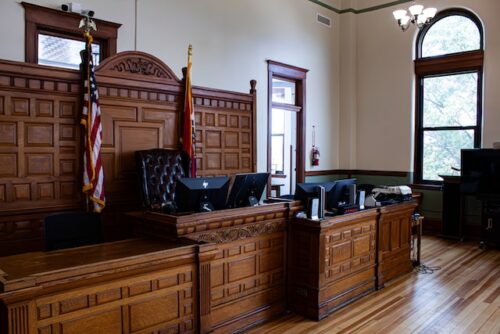
If you’ve been arrested or charged with a crime, you’re likely very worried, both about long-term and short-term complications. In the long term, you may want for this to have the fewest and least intense possible consequences. And you may be even more concerned about what you will have to face immediately through the criminal trial.
This blog post will take you through all the phases of a criminal trial. We will explain how a Memphis criminal defense attorney can work with you for the best possible results for your trial.
Pre-Trial Phases of a Criminal Trial
Judging from television, the common understanding of a criminal trial begins in the courtroom, with the prosecution and defense exchanging rhetorical blows. In actuality, there are several steps before the well-known scenes take place.
First, the police will request an arrest warrant, which is what allows you to be arrested. There may also be a warrant for victims or witnesses to come and testify. After you’re arrested, the Court may hold a bond hearing, where it will decide if you should be held in the local jail while the trial is in progress or if it may release you on bail. Every criminal case does not have a bond hearing.
The first court hearing will be the preliminary hearing. It may resemble a preview of what the trial, later on, looks like. During the preliminary hearing, the court will determine whether there is a plausible reason that a crime happened and that you as the defendant committed it.
From here, the path your case takes will diverge depending on the circumstances. If the result of the preliminary hearing is that the court thinks a misdemeanor crime happened and that you committed it, the very next step will be a plea hearing. However, if the court determines that you committed a felony, then the next step is the grand jury hearing.
Grand Jury versus Plea Agreements
The grand jury phase involves the prosecutor presenting their case. The grand jurors will decide whether the defendant should be formally charged, and if so, they will return an indictment. Although the defendant isn’t present at the grand jury hearing, they must appear in court at the next phase: the arraignment, where the defendant receives a copy of the indictment and arrangements are made for the defendant’s attorney.
The court will then set report dates, also known as status hearings. As the defense and prosecution prepare their case, they will report to the court on their progress at the report dates.
At this point, a felony case reaches the plea agreement, where misdemeanors jumped to after the preliminary hearing. Plea agreements are negotiated settlements if the defendant agrees to plead guilty. In exchange for saving the state on the cost of a full trial, the prosecutor typically agrees to lower the charge or punishment. If no plea agreement is reached, the case goes to trial.
Criminal Trial and Post-Trail
After all of that, we reach the phase that we imagine when we say the words “criminal trial.” Here the prosecution and defense present their arguments, with the prosecution shouldering the heavier burden of proof, beyond reasonable doubt. That means they must prove there is no other reasonable explanation than that the defendant committed the crime.
At the end, there is the sentencing phase, when the court decides what happens to the defendant. After the trial, you may appeal your verdict. Even later, you may apply for parole, which will allow you to leave prison before your sentence is up with certain restrictions.
